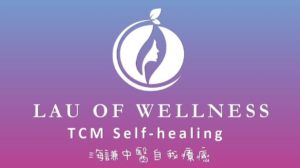Introducing our list: the “20 Most Effective Stress Management Techniques.” In this overview, we’re diving into different ways to help you handle stress better. Stress is a big part of life, but with these techniques, you can learn to deal with it.

In today’s busy world, it’s important to look after your mental well-being. That’s why we’ve gathered twenty simple and proven methods to help you tackle stress and find balance. From easy breathing exercises to relaxing activities, each one offers a unique way to manage stress.
Join us as we explore these twenty helpful techniques, designed to make your life less stressful and more enjoyable. Whether you need a quick fix or long-term solutions, you’ll find practical tips to help you along the way.
Let’s start your journey to a calmer, happier life together.
Deep Breathing Exercises
One of the most effective stress management techniques is deep breathing exercises.
When we’re stressed, our body goes into fight or flight mode, causing our heart rate and blood pressure to rise. Stress levels can be lowered and the nervous system calmed with deep breathing.
How to Practice Deep Breathing
- Locate a calm area where you can comfortably sit or lie down.
- Shut your eyes and inhale deeply via your nose.
- Allow your belly to expand as you inhale deeply.
- Hold your breath for a few seconds.
- Breathe out slowly through your mouth to let go of any stress or anxiety.
- Focus on the sensations of inhalation and exhalation as you breathe.
- Repeat this deep breathing pattern several times, at your own pace.
- Notice how your body and mind feel more relaxed with each breath.
- Continue practicing deep breathing whenever you need to reduce stress or promote calmness.
Repeat this process several times, focusing on each breath and allowing yourself to relax with each exhale.
Deep breathing exercises can be done throughout the day whenever you feel stressed or overwhelmed, helping to bring a sense of calm and clarity to your mind.
Mindfulness Meditation
Focusing on the here and now while maintaining an impartial awareness of your thoughts, feelings, and sensations is the goal of mindfulness meditation. You can lower your stress levels and acquire mental control by engaging in mindfulness practices.
How to Practice Mindfulness Meditation
- Look for a peaceful area where you won’t be bothered.
- Closing your eyes, take a comfortable seat, or lie down.
- Begin by focusing on your breath.
- Keep track of how it feels to breathe in and out.
- Feel the air passing through your nostrils and the movement of your chest as you breathe in and out.
- If your thoughts stray, softly return them to your breathing without passing judgment.
- Allow thoughts and sensations to come and go, returning your attention to the present moment.
- Practice this mindful breathing for a few minutes or as long as you like, gradually increasing your duration over time.
Just gradually bring your attention back to your breathing as thoughts or other distractions come to mind, acknowledging them without passing judgment. This practice can help calm the mind and reduce stress by bringing your awareness to the present moment.
Regular practice of mindfulness meditation can improve your ability to manage stress in daily life and increase your overall sense of well-being.
Give it a try and see how it can help you find peace amidst the chaos of daily life.
Progressive Muscle Relaxation
Progressive muscle relaxation is another of the most effective stress management techniques.
This practice involves tensing and then releasing each muscle group in your body to help reduce physical tension and promote relaxation.
How to Practice Progressive Muscle Relaxation
- Look for a spot where you can sit or lie down comfortably and relax.
- Focus on your breath and take a few deep breaths to center yourself.
- Begin by tensing the muscles in your feet as tightly as you can for a few seconds.
- Slowly release the tension in your foot muscles.
- Move on to tensing and relaxing the muscles in your calves, thighs, and buttocks.
- Proceed to tense and release the muscles in your abdomen, chest, arms, and hands.
- Finally, tense and release the muscles in your neck, jaw, and face.
- Remember to breathe deeply and evenly throughout the process.
- Continue this sequence, working your way up from your feet to your head, until you feel relaxed and calm.
Move on to the muscles in your calves, thighs, abdomen, chest, arms, shoulders, and neck, repeating this process for each muscle group.
As you release the tension in each muscle group, pay attention to the sensation of relaxation and let go of any stress or tension you may be holding onto.
Progressive muscle relaxation can help reduce physical symptoms of stress, such as headaches, muscle aches, and tightness.
By practicing this technique regularly, you can learn to identify and release tension in your body, promoting a sense of calm and relaxation.
Yoga and Stretching Routines
Yoga and stretching routines are among the most effective stress management techniques that not only help to reduce physical tension but also promote mental relaxation.
Yoga combines physical postures, breathing exercises, and meditation to help calm the mind and release stress from the body.
Practicing yoga regularly can improve flexibility, strength, and balance while also reducing anxiety and promoting a sense of well-being.
By focusing on deep breathing and mindfulness during yoga practice, you can learn to let go of worries and stressors, allowing yourself to be present in the moment.
Stretching routines are another great way to relieve muscle tension and reduce stress levels. By gently stretching your muscles through various movements, you can increase blood flow, improve flexibility, and promote relaxation throughout your body.
Whether you choose to practice yoga or follow a stretching routine, incorporating these activities into your daily routine can have a significant impact on your stress levels.
By taking the time to focus on your breath, movement, and mental awareness, you can cultivate a sense of calm and balance that can help you manage stress more effectively.
Journaling and Expressive Writing
Journaling and expressive writing are two of the most effective stress management techniques that can help you process difficult emotions, gain insight into stressful situations, and reduce overall levels of stress.
By putting your thoughts and feelings onto paper, you can release pent-up emotions and gain a sense of clarity and perspective.
How to Practice Journaling
- Dedicate some time every day to jot down your innermost ideas, emotions, and life events.
- Choose to focus on specific events causing you stress or let your thoughts flow freely onto the page.
- Use a notebook or digital platform to document your reflections.
- Write honestly and without judgment, allowing your thoughts to unfold naturally.
- Explore your emotions, concerns, and hopes through the act of writing.
- Reflect on your day, acknowledging both the challenges and joys you encountered.
- Consider prompts or questions to guide your journaling process, if helpful.
- Review your entries periodically to track patterns or insights.
- Embrace journaling as a tool for self-discovery and emotional expression.
Expressive writing involves exploring deeper emotions and thoughts related to stressful events or experiences. This technique often involves writing about a specific stressful event in detail, including how it made you feel and how it has impacted you.
By delving into these emotions and experiences through writing, you can gain insight into your reactions to stress and develop healthier coping mechanisms.
Both journaling and expressive writing can help reduce the impact of chronic stress on your physical and mental health.
By processing your thoughts and emotions through writing, you can release built-up tension, improve your mood, and gain a sense of control over difficult situations.
Time Management Strategies
Time management strategies are among the most effective stress management techniques that can help you prioritize tasks, reduce feelings of overwhelm, and create a sense of balance in your daily life.
By effectively managing your time, you can increase productivity, reduce procrastination, and alleviate stress associated with deadlines and time constraints.
One key time management strategy is creating a daily schedule or to-do list. By writing down tasks and allocating specific time slots for each one, you can stay organized and focused throughout the day.
This can help prevent last-minute rushes and decrease feelings of stress related to unfinished tasks.
Set Realistic Goals and Deadlines
Another effective time management technique is setting realistic goals and deadlines. By breaking down larger projects into smaller, manageable tasks with clear deadlines, you can create a sense of purpose and direction in your work.
This can help you stay motivated and focused, ultimately reducing stress associated with feeling overwhelmed or unprepared.
Set Boundaries
Additionally, practicing good time management involves setting boundaries and learning to say no when necessary.
By prioritizing tasks that are most important and align with your goals, you can avoid taking on too much and becoming overwhelmed.
This can help you maintain a healthy work-life balance and reduce stress related to over-commitment.
Take Regular Breaks and Short Breaks
Incorporating regular breaks into your daily schedule is another important time management strategy that can help prevent burnout and reduce stress levels.
By stepping away from work periodically to rest and recharge, you can improve focus, productivity, and overall well-being.
Taking short breaks throughout the day can also help alleviate physical tension and reduce the risk of burnout.
Healthy Nutrition and Hydration
Some of the most powerful ways to manage stress, improve your physical health, and lessen its negative impacts on your body are to eat healthily and drink enough water.
Eating a balanced diet rich in whole foods, fruits, vegetables, lean proteins, and healthy fats can provide essential nutrients that support overall well-being and help regulate stress responses.
Proper nutrition can help stabilize blood sugar levels, which in turn can have a positive impact on mood and energy levels.
Consuming regular, nutritious meals throughout the day can help prevent spikes and crashes in blood sugar that may contribute to feelings of irritability, fatigue, and anxiety.
Additionally, staying hydrated by drinking an adequate amount of water each day can help maintain proper bodily functions and support cognitive function, which can help you better manage stress.
Regular Physical Exercise
Another Stress Management technique is Engaging in regular physical exercise that can help reduce feelings of anxiety, improve mood, and promote overall well-being.
Studies have demonstrated that engaging in physical activity triggers the release of endorphins, which have dual functions as both natural painkillers and mood enhancers. This can help combat feelings of stress and boost your mental health.
Some benefits of regular physical exercise for stress management include:
- Lowering blood pressure: Exercise can help lower blood pressure, reduce heart rate, and improve cardiovascular health. This can have a positive impact on the body’s stress response and help you better manage stressful situations.
- Reducing muscle tension: Physical activity can help release built-up tension in the muscles, promoting relaxation and reducing physical symptoms of stress such as headaches, back pain, and muscle tightness.
- Improving sleep quality: Regular exercise can help regulate sleep patterns and improve the quality of your sleep. Getting an adequate amount of restful sleep is essential for managing stress and maintaining overall well-being.
- Boosting self-confidence: Engaging in physical activity can boost self-esteem and confidence, which can help you better cope with challenging situations and build resilience to stress.
Adequate Sleep and Rest
Getting enough sleep and prioritizing rest are crucial components of stress management.
Adequate sleep is essential for overall well-being and plays a significant role in regulating mood, cognitive function, and stress levels.
Here are some tips for improving your sleep quality and ensuring you get enough rest:
- Establish a consistent bedtime routine: Creating a bedtime routine can help signal to your body that it’s time to wind down and prepare for sleep. Activities such as reading, taking a warm bath, or practicing relaxation techniques can help promote restful sleep.
- Make your bedroom a relaxing place to sleep by adjusting the lighting, noise level, and temperature so that you can get a good night’s rest. Investing in a quality mattress, pillows, and bedding can also help improve your sleep quality.
- Limit screen time before bed: The blue light emitted by screens can interfere with the production of melatonin, the hormone responsible for regulating sleep. Avoid using electronic devices such as smartphones, tablets, and computers at least an hour before bedtime to ensure a restful night’s sleep.
- Practice relaxation techniques: Engaging in relaxation techniques such as deep breathing exercises, or progressive muscle relaxation can help calm your mind and body before bedtime, making it easier to fall asleep and stay asleep throughout the night.
By prioritizing adequate sleep and rest, you can support your body’s ability to manage stress effectively and maintain optimal health.
Social Support Networks
Cultivating a strong support system is crucial for effectively managing stress in daily life.
Social support networks can provide emotional support, encouragement, and practical assistance during difficult times, helping individuals navigate through stressful situations with greater ease.
Here are some ways social support networks can help in stress management:
Emotional Support
Having friends, family members, or peers who offer a listening ear and empathetic understanding can help alleviate feelings of loneliness and isolation.
Simply knowing that someone cares and is there to listen can make a significant difference in how one copes with stress.
Practical Assistance
Social support networks can also offer practical help in times of need.
Whether it’s running errands, providing childcare, or offering advice on how to handle a challenging situation, having a support system that is willing to lend a helping hand can reduce feelings of overwhelm and provide relief during stressful times.
Validation and Understanding
Being able to share your thoughts, feelings, and experiences with others who understand and validate your emotions can help normalize your stress response.
Knowing that you aren’t alone in how you feel can offer reassurance and comfort, making it easier to cope with stressors.
Sense of Belonging
Feeling connected to others and belonging to a community or group can provide a sense of purpose and identity, which can boost self-esteem and resilience.
Knowing that you have people who care about you and value your presence can increase feelings of security and support in managing stress effectively.
Positive Affirmations and Self-Talk
An optimistic outlook and effective stress management techniques include the use of positive self-talk and affirmations.
Through the deliberate substitution of positive and uplifting statements for negative ones, people can change their outlook, increase their self-esteem, and lessen their tension and worry.
Here are some ways positive affirmations and self-talk can help in stress management:
Changing Negative Thought Patterns
When faced with difficult situations or stressful events, it’s common for negative thoughts to arise.
Through the practice of positive affirmations, such as “I am capable,” “I am resilient,” or “I can handle this,” people can refute and confront negative ideas that fuel stress.
This shift in thinking can help foster a more optimistic outlook and increase feelings of empowerment and control.
Boosting Self-Confidence
Positive affirmations and self-talk can help individuals cultivate a sense of self-worth and confidence in their abilities.
By acknowledging their strengths, accomplishments, and potential, individuals can build resilience and belief in themselves, which can help them better navigate stressors and challenges.
Promoting Resilience
Using positive affirmations and self-talk to reframe setbacks or failures as learning opportunities can enhance resilience.
People recover from adversity and keep a positive outlook during challenging times if they place more emphasis on growth, flexibility, and advancement than on errors or shortfalls.
Incorporating daily practices of positive affirmations and self-talk into your routine can be a powerful tool for managing stress and promoting mental well-being.
People can develop a more positive outlook, increase their self-confidence, and strengthen their resilience in the face of adversity by deliberately substituting positive affirmations for negative ideas.
Seeking Professional Counseling or Therapy
Seeking professional counseling or therapy is a valuable and effective stress management technique for individuals experiencing high levels of stress or struggling to cope with challenging situations.
A licensed therapist or counselor can provide support, guidance, and evidence-based interventions to help individuals better understand their stressors, develop coping strategies, and improve their mental well-being.
Here are some ways in which professional counseling or therapy can benefit individuals in managing stress:
Individualized Support
A trained therapist can offer personalized support tailored to the individual’s unique needs and circumstances.
Through one-on-one sessions, individuals can explore their thoughts, feelings, and behaviors in a safe and confidential environment, gaining insights and perspectives that can aid in stress management.
Utilizing Evidence-Based Interventions
Professional counselors and therapists are trained in various therapeutic modalities and techniques that have been proven effective in managing stress.
From cognitive-behavioral therapy to mindfulness-based interventions, these evidence-based approaches can help individuals develop healthier coping mechanisms, improve emotional regulation, and reduce the impact of stress on their mental health.
Addressing Underlying Issues
In many cases, chronic stress may be rooted in underlying issues such as past trauma, unresolved conflicts, or maladaptive coping strategies.
Through counseling or therapy, individuals can explore the root causes of their stress and work towards resolving them.
People can enhance their general well-being and get long-lasting relief from chronic stress by taking care of these underlying concerns.
Learning Coping Strategies
Professional counseling or therapy can also help individuals learn effective coping strategies to manage stress in their daily lives.
Therapists can teach relaxation techniques, mindfulness practices, and stress-reduction exercises that individuals can incorporate into their routines to alleviate tension, reduce anxiety, and promote emotional well-being.
Building Emotional Resilience
By working with a therapist, individuals can strengthen their emotional resilience and develop healthy ways of responding to stress.
Through self-exploration, self-awareness, and emotional regulation techniques, individuals can build the skills needed to navigate challenging situations with greater ease and adaptability.
Providing Validation and Encouragement
In therapy sessions, individuals are offered a non-judgmental space where they can express their thoughts and feelings openly.
Therapists provide validation, empathy, and encouragement, helping individuals feel heard, understood, and supported in their journey towards managing stress.
This sense of validation can boost self-esteem, enhance self-compassion, and foster a greater sense of empowerment in dealing with stressful situations.
Utilize TCM Therapies for Stress
Traditional Chinese Medicine (TCM) offers a holistic approach to managing stress by addressing the mind-body connection and restoring balance within the body’s energy systems.
Incorporating TCM therapies into your stress management routine can help alleviate symptoms of stress, promote relaxation, and improve overall well-being.
Acupuncture
Sticking tiny needles into certain anatomical spots is called “acupuncture,” and its purpose is to balance the body’s energy channels and promote circulation.
This ancient practice can help reduce stress levels, lower blood pressure, and relieve muscle tension, promoting a sense of calm and relaxation.
Herbal Medicine
TCM herbal remedies are often used to support the body’s natural healing process and address underlying imbalances that contribute to stress.
Adaptogenic herbs such as ashwagandha, rhodiola, and holy basil can help the body adapt to stress, enhance resilience, and promote a sense of calm and well-being.
Tai Chi
Tai Chi is a gentle form of exercise that combines flowing movements with deep breathing and mindfulness practices.
This mind-body practice can help reduce stress, improve flexibility, and promote relaxation by harmonizing the body’s energy systems and calming the mind.
Qi Gong
Slow, methodical movement, breathing exercises, and meditation practices are the components of Qi Gong, an ancient Chinese practice.
This gentle exercise can help reduce stress levels, increase energy flow throughout the body, and promote a sense of inner peace and balance.
Incorporating TCM therapies such as acupuncture, herbal medicine, Tai Chi, and Qi Gong into your stress management routine can provide holistic support for managing stress, promoting relaxation, and improving overall well-being.
These ancient practices work to restore balance within the body’s energy systems, reduce stress levels, and enhance resilience in the face of life’s challenges.
Note: We’re offering TCM Wellness Classes on Natural Healing TCM for you. In these classes, you can learn acupressure, Tai Chi, Qigong, and more to manage stress levels and other issues you may be facing.
Get in touch with us so we can listen to your problems and begin working with you through online sessions.
Always remember, ‘Health is Wealth.’ If you seek better health, TCM therapies, and their Wellness Classes are highly recommended instead of using any Western medicine.
Conclusion
In conclusion, stress is inevitable, but how we manage it is what truly matters. By incorporating these 20 effective stress management techniques into your daily routine, you can take back control of your well-being and live a more peaceful, balanced life.
Remember, self-care is not selfish – it’s necessary for your mental and physical health.
So, take a deep breath, practice mindfulness, and embrace these techniques to conquer stress and thrive in all aspects of your life.
Your mind and body will thank you for it!
FAQs
It’s important to explore and try out different techniques to see what works best for you. Consider factors such as your personality, preferences, and lifestyle when choosing a stress management technique. What works for one person may not work for another, so it’s essential to find what resonates with you.
The timeline for seeing results from stress management techniques can vary depending on the individual and the technique being used. Some people may experience immediate relief from stress after practicing deep breathing or mindfulness, while others may require more time and consistency with techniques like progressive muscle relaxation or acupuncture. It’s important to be patient and consistent with your practice, as the benefits of stress management techniques may take time to fully manifest. Remember that managing stress is a journey, not a quick fix, so give yourself grace and time to find what works best for you.
Yes, these stress management techniques can complement other therapies or treatments you may be receiving. It’s important to consult with your healthcare provider or mental health professional before incorporating new techniques into your routine, especially if you have underlying health conditions or are taking medications. These techniques are meant to support overall well-being and can be used alongside other forms of treatment for a comprehensive approach to managing stress.
In addition to practicing specific stress management techniques, you can also incorporate mindfulness and relaxation practices into your daily routine. This can include taking short breaks throughout the day to practice deep breathing or meditation, setting boundaries with work or social commitments to prioritize self-care, engaging in physical exercise or movement to release tension, and maintaining a healthy diet and sleep routine. Finding small moments of peace and relaxation throughout your day can help reduce overall stress levels and improve your well-being.

















